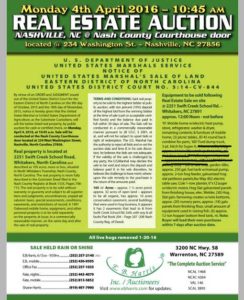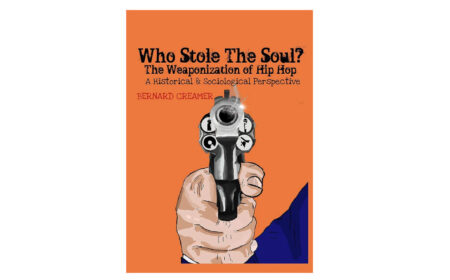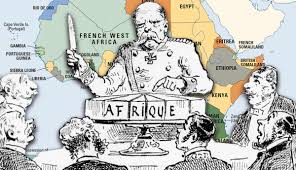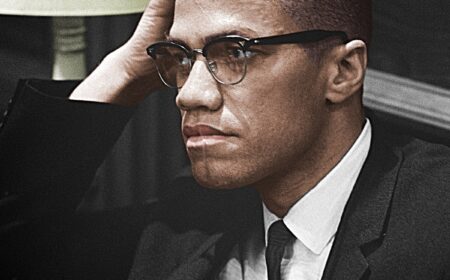UPDATE ON FARMER EDDIE WISE: Moral Failure – The Buying of the Wise Farm
BLACK FARMERS AND AGRICULTURIST ASSOCIATION
April 5, 2016
Eddie and Dorothy Wise’s farm was purchased by a neighboring white farmer for $260,000 at a public, forced, auction yesterday. The farm was sold as part of a foreclosure despite an established pattern of discrimination by local county FSA agents, a global expression of concern, a concerted effort of local advocates, and a Color of Change petition of 30,000 signatures calling for a halt to the foreclosure. We are heartsick, emotionally exhausted, and angry at this callous disregard for the livelihood of one of our brothers and sisters and their family. We also find it morally reprehensible.

Eddie Wise and his dogs.
This post isn’t meant to summarize all that has been going on with this tragedy. Read up on this page https://www.facebook.com/BFAA.org/ to learn more details. When you do, you’ll find a lot of support among not only the Black farming community, but other groups and individuals concerned with the disappearance of the family farmer in this country and around the world. You’ll also find a handful of folks who ask questions and wonder about the financial skills and practices of the Wises. We want to take a minute to address this latter group because they reveal a hidden iceberg of suspicion and doubt that is a handmaiden of white supremacy and oppression.
For these folks, there is always suspicion that Black folks are trying to pull a fast one, to get over, or otherwise get something undeserved and unearned through hard work. A damning criticism indeed in our society of believers in the fabled Horatio Alger story of upward mobility. In that story, success is earned through hard work, thrift, and discipline, a set of morally imbued characteristics that suggest character and virtue. So, by extension, those who suffer, are poor or otherwise not successful, are seen somehow as moral failures. They have, in this narrative, a character flaw, a defect. They are, somehow, morally deficient. The problem is, the characters in Horatio Alger’s novels were inventions just like the myth of the American Dream. Myths are powerful things, though, and serve important functions. They provide guidance just as frequently as they conceal truth. They don’t, however, describe reality. To view the Wise case as a personal failing is to ignore historical evidence, subscribe to a false notion of individualism, and support racializing views that reinforce white supremacy.
Fact. Financial hardships and bailouts are everyday occurrences in modern agriculture, finance, and industry – recall the bank bailouts of 2009. Icons of success receive innumerable forms of assistance that directly contradict their self-proclaimed Horatio Alger narratives.
Fact. Eddie and Dorothy Wise, like Black people across the US, were treated unfairly in matters directly affecting the securing and operating of their farm.
To ask questions about why they missed payments, incurred so much debt, weren’t able to market their goods, etc. is to completely miss the point. Farmers and business people everywhere have financial struggles, only non-white folks also experience discrimination. The burdens of small producers everywhere are daunting. Pile on discrimination and it is impossible.
But even worse, to ask these questions is to embrace a view of Black Americans that relies on racial stereotypes, fears, and a wholly imaginary white pathway. That white pathway, like the Horatio Alger stories, says that “I’m successful because of my effort. I didn’t get any help. I made tough choices.” It’s harmful and inaccurate to believe that story because it is applied in the reverse to the unsuccessful, impoverished, or destitute. Without knowing anything about others, it is too easy to simply say that those who aren’t successful must not be doing something right. They must not be working hard enough, be thrifty enough, or have enough personal character. These beliefs are factually unsupported, but mythically powerful things. That is, there simply isn’t evidence to support that the impoverished are lazy, unmotivated, or otherwise deficient, let alone morally deficient. Even more, it is harmful to assert the validity of the white pathway because it simply isn’t true. Hard work is great, but it isn’t the sole or primary purview of white people. It simply doesn’t explain the differences in poverty rates by race. In fact, there are many more poor white people than poor people of color in the US. The rates are higher for non-whites, but the numbers are clearly higher for whites. Rates of poverty, interestingly, are historically higher in rural areas than urban areas. These rural areas are overwhelmingly white. So, to impugn Eddie and Dorothy Wise’s financial practices is to enlist a host of familiar stereotypes, ignore the profound history of racial inequality, and reinforce a mythical imaginary of white success.
The white neighbor who bought Eddie’s farm has had his eye on that property since 1993. Unsurprisingly he wanted to acquire neighboring property. During the farm crisis of the 1980s it was largely seen as bad form to try and purchase a struggling neighbor’s place. Why? Because, as members of a community, folks were to exercise restraint when faced with opportunities that came through the suffering of others. These values stemmed from a lot of things including the social bonds that emerge among community members, the engagement in shared forms of work, and, for many, deeply held Christian beliefs. The purchase of your struggling neighbor’s farm might happen, but only under extraordinary circumstances. To actively pursue it represented a moral failure.

Eddie Wise Farm Sale Flyer
At the sale of the Wise farm there were two bidders. It turns out they were working together. One of the bidders was Eddie and Dorothy’s neighbor, the other had no intention of buying the property and simply served to help get the price to a “fair” level. Under normal foreclosure proceedings the person losing their farm typically has around 10 days to make a counter-offer and save their place. These types of protections are commonly seen as a way to give every opportunity to the landowner to stay on their place. This was not an option at this sale. Whether this is legal or not is under investigation. Regardless, to treat your neighbor as an opportunity rather than your responsibility is far from Christian. To aggressively and strategically maneuver to buy your struggling neighbor’s farm is a service to self, not a service to others.
Selling the Wise farm illuminates the structural, racial, dimensions of inequality in this country. Buying Eddie and Dorothy Wise’s farm brings into clear view the moral failure of the white, Christian, community.






Comments (2)
David Whitley
When is enough enough… Im a white 45yr old male who grew up on a farm. Super hard work, huge responsibilites. I just heard about the Wise’s issue on NPR. Husky and Nichols MUST be held accountable period. I can only hope someone with power can rectify this soon. The Wise’s deserve so much more. Just a family trying to live and contribute to society, that effort alone deserves equal treatment from there peers. Bigots need to be put in their place…
Chris Jonsson
This story made me cry. Our country can be very cruel to people just trying to scratch out a living. The Wise family deserve justice.